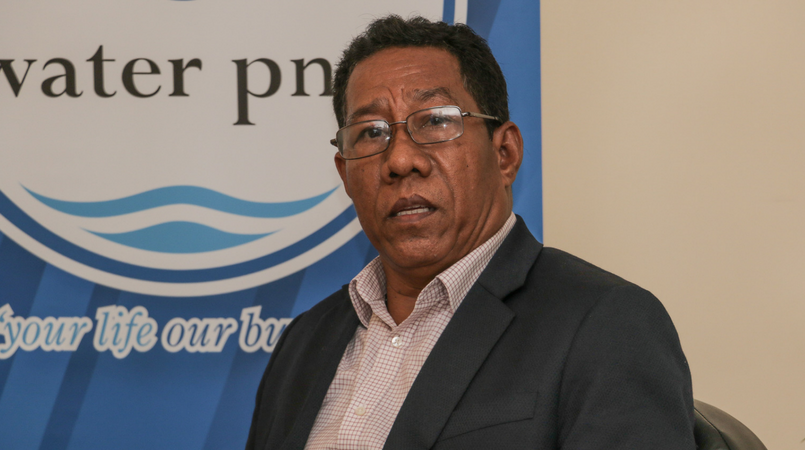
Water PNG is positive that the corporatization of the entity will be passed when Parliament resumes next year.
Chief Executive Officer, Raka Taviri, tells Loop PNG that they are confident that the Water and Sanitation Bill will be passed next year and are preparing for the transition.
The particular bill, which will see the creation of the Water PNG Limited, will replace the Water Supply and Sewerage Act 1986.
On November 4th this year, Parliament voted for the bill however, it failed to muster the required number of 57-plus; falling short by 56.
Seven members of Parliament voted against it. The result would have been different had the Parliament Chamber been full.
The bill received criticism by Sinesine-Yongomugl and Opposition MP, Kerenga Kua, who said the corporatization of Water PNG will raise taxes and cost for low to middle income earners.
“Are we here to tax and tax our people to death? Or are there some services that we should provide at a break-even basis without operating it on a commercial basis and giving it to our people to improve and maintain their quality of life,” said Kua.
He further added: "This is going to be destructive to life everywhere in this country.
"I would rather we go back to the drawing board and identify which services should now become the subject of a commercial operation in which the State can participate. Because there's going to be a deviation from our primary from providing goods and services,” said Kua.
“If you put in this profit motive, as the Minister has just said, the price is expected to grow about another 30 – 40 percent.
"That’s going to add to the problems the first time home buyers have, even people who want to go into investment, who start out in small homes in the suburbs, they pay more to the Waterboard, they pay more to PNG Power, they can't afford to take off in a small business because these costs just add up.”
Taviri says the new bill will give the organisation more efficiency to carry out its programs.
“In reality, we have been in existence and regulated under the ICCC and we have not been operating differently from the way we have been operating.
"Administratively and commercially a bit more efficiency in trying to operate."
Minister for Public and State Enterprise, William Duma, has previously stated: “The entity is to operate as a fully commercial enterprise as envisioned under the Kumul Agenda.
“The Waterboard also has certain regulatory functions under the National Water and Supply Sewerage Act and the Regulations.
"This has proven to be an unsatisfactory arrangement, both from a policy and an administrative point of view, and also because of the untidy nature of the governing legislations,” said Duma.
“As a policy matter, the supply of water and the provision of sanitation services should be done on a commercial basis by a new corporatised entity, which will take over these functions from the Waterboard,” said Duma.
